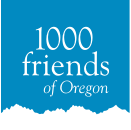1000 Friends of Oregon plays a unique role in advocating for transportation systems that create healthy, livable, climate-resilient communities through land use and transportation planning.
The connection between land use planning and transportation
Land use planning and transportation are two sides of the same coin. The way we develop our communities has a profound impact on how we get around, and vice versa. People and businesses rely on daily access to the transportation services they need. From public transit to freight delivery, transportation impacts our quality of life, cost of living, environmental quality, and the flow of goods and services that support local and regional economies.
By promoting smart growth policies that support active transportation and transit, 1000 Friends of Oregon is working to create communities that are more livable, sustainable, and equitable, and that provide people with more transportation options that fit their needs and preferences. Goal 12 of our land use system asks us to plan for growth and depend on diverse methods of transportation, not just the car.
We did our homework for the 2025 session
Our Oregon in Motion report is a detailed narrative between our last major transportation package, HB 2017, and the present as Oregon works on a 2025 transportation package.
Promoting sustainable transportation
1000 Friends of Oregon is committed to promoting sustainable transportation options that reduce reliance on single-occupancy vehicles and promote active transportation for those who are able, such as walking and biking, as well as public transit. Roughly 30 percent of Oregonians don’t have access to a car. By supporting policies that make it easier for people to get around without a personal vehicle, we can reduce traffic congestion, air pollution, and greenhouse gas emissions, and create more livable communities.
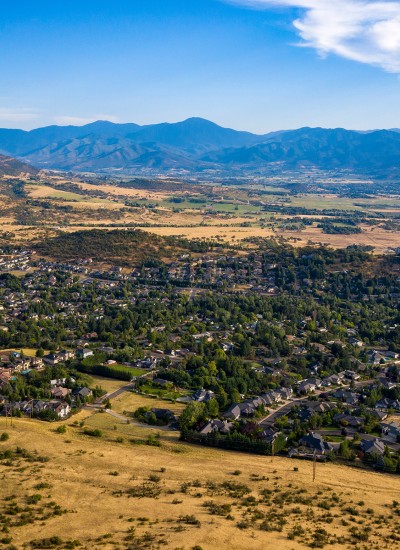
Smart growth and transportation
Transportation and land use planning are deeply interconnected, and 1000 Friends of Oregon recognizes the importance of smart growth policies that encourage compact, walkable, and bikeable communities. By promoting transit-oriented development, mixed-use development, and infill development, we can help reduce sprawl and make it easier for people to get around using sustainable modes of transportation.
Goal 12 of our land use system asks us to plan for growth and depend on diverse methods of transportation, not just the car.
Barriers to transit-oriented development
Portland is one of the United States’ most walkable and transit-rich small cities, yet barriers to transit-oriented development (TOD) remain. Through stakeholder interviews, this study identifies the barriers to TOD in Portland and provides recommendations.
Advocating for policy change & working in coalition
To achieve our goals of promoting sustainable transportation and smart growth, 1000 Friends of Oregon engages in advocacy at the state and local levels. We work with policymakers to promote policies that support active transportation, public transit, and smart growth, such as Complete Streets policies, transportation funding reform, and zoning changes that promote walkability and bikeability.
1000 Friends of Oregon knows that we can’t go it alone to build the future of Oregon we seek. That’s why we are an active member of the following coalitions:
- Move Oregon Forward: This campaign is helping steward a safe, clean, equitable, and accountable 2025 legislative transportation package.
- The Getting There Together Coalition: This space is focused on transportation investments in the Portland metro region. We’ve been a member since 2017.
- The Clean Just Transportation Network: This is a space where transportation advocates statewide come together to focus on state legislation and transportation policy reform.
- The Just Crossing Alliance: A bi-state alliance focused on ensuring we have a seismically safe and right sized I-5 bridge replacement.
- The National Campaign for Transit Justice: A national coalition focused on getting more direct support for transit operations. Currently most federal dollars go to highway and roadway projects.
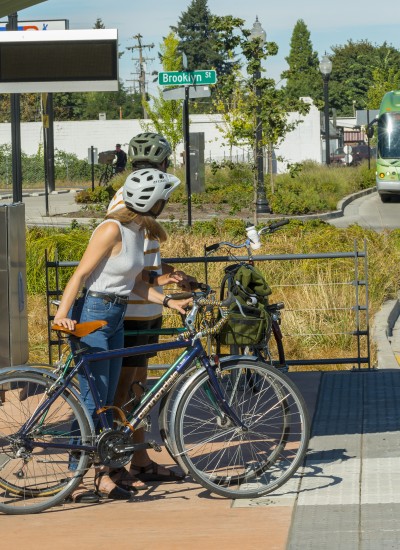
Collaboration with community partners
1000 Friends of Oregon recognizes that collaboration with community partners is critical to achieving our goals of promoting sustainable transportation and smart growth. We work closely with local governments, transit agencies, community organizations, and other stakeholders to build support for our policy proposals and ensure that our work is grounded in the needs and perspectives of the communities we serve.
In the past few years alone we have:
- Partnered with local governments and supported measures that would fund transportation investments and improvements;
- Supported our local transit agencies through advocacy for federal funding and support through the COVID pandemic;
- Assisted with educational programming, such as our LULI program, which educates Oregonians on how to get involved in transportation and land use decisions in their communities;
- Supported, worked on, and opposed major legislation at the state level regarding transportation;
- Lent capacity to partners building their transportation skill sets, and worked to get them engaged in the land use planning system and local opportunities; and
- Engaged in community-driven planning and centered impacted communities to ensure their needs are met in our transportation system.
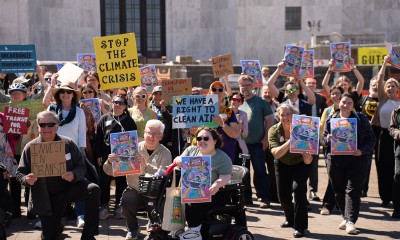
At the halfway point for the 2025 legislative session, we’re still waiting for the biggest transportation bill to land. But advocates are already well versed in what that bill will look like.
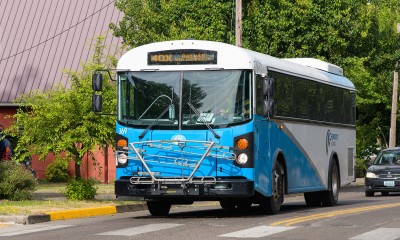
As part of the Move Oregon Forward campaign, we spent the fall analyzing data from Oregonians around the state in response to the legislature’s transportation listening tour. Top priorities? Transit and maintenance, not freeway expansion.
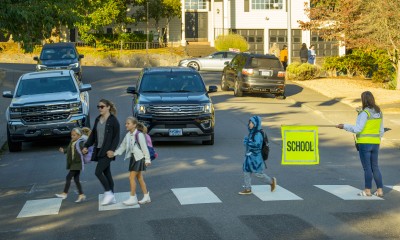
We’re working toward a safe, clean, fair, and accountable transportation system. Oregon should be equitably investing its transportation revenue across the state for the benefit of everyone, not just suburban commuters in the Portland metro area.
